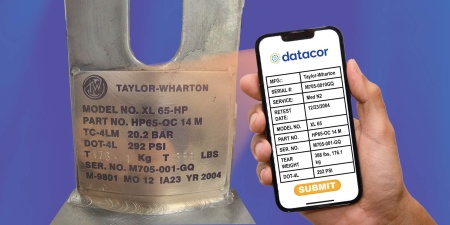I have had the privilege of working with some very bright Millennials (born 1980 through 1994), individuals who have excelled in their use of effective sales tools. Among them, a select few have shown the passion and skill set necessary to become “best in class” sales managers. There was one person, in particular, who I felt was very talented. Her goal was to develop a career in executive distribution management at the regional level. To achieve that, we worked together on sharpening her expertise in the areas necessary for success as a next generation sales manager. Here are some of the things we focused on.
A Culture of Accountability
The next generation manager, like all good managers, must be able to assert strong beliefs in the company’s systems and lead her team through them. Salespeople must be held accountable for meeting specific targets, on a monthly basis, with accurate and timely reporting, steady sales and margin growth, and consistent call frequency on existing and new accounts. Any other corporate measurements, such as the number of new products/services sold, signed contracts, key account visits, etc., must also be understood and accounted for in a timely manner. The manager must be able to command the respect of her sales force to ensure that each rep comes to monthly meetings prepared, on time, and with the necessary information to review all targets and measurements.
Define the Sales Cycle
There are five basic steps in a sales cycle: (1) building trust in relationships, (2) discovering pain/need, (3) validating the decision-maker, (4) identifying the required investment, and (5) providing the solution. In a well-managed team, these steps are clearly defined and tracked for all accounts. Sales reps are able to provide information to the manager, at any time, on where they are in the sales cycle, including for their top five key prospects.
Implement Effective Sales Management Tools
A manager must be clear as to what constitutes sales success. Here are ten tools a manager can use to help ensure that each rep’s sales activity is on the right path: (1) daily call reports, (2) a monthly calendar planner, (3) monthly looking back/looking forward activity summaries, (4) new/penetration next step funnels, (5) top five prospects with next steps to closure, (6) account results focused on new business and penetration margins, and overall territory margin growth, (7) dashboard performance goals in 6 to 8 key areas, (8) monthly assessment dates with the manager to review sales tools, (9) coaching travel days wherein the sales manager spends at least one day per month with each rep, and (10) sales rep performance review meetings that include a top ten customer.
Dealing with Upset Customers
Your sales team must have a consistent plan for dealing with an upset customer. Experience has taught me that problems are normally related to technical issues about 20% of the time and to faulty communication in about 80% of cases. Heed the expression, “We have two ears, but only one mouth, so we should listen twice as much as we talk.” Under the right conditions, even the most upset customer can become a good friend if you listen carefully. The best resolution must contain: (1) a timely response (frustration builds with time), (2) an apology — assume responsibility even if you believe it is not totally your fault, (3) listen intently, ask questions, and empathize with the customer, (4) “Take him to the couch”— wait until the customer has fully vented his concerns, (5) ask the customer for a resolution— you may be surprised by what they actually have in mind, and finally, (6) offer more than the customer expects as part of your resolution. Conflict, if handled correctly, can actually become an opportunity to build a long-lasting working relationship.
Resolve Performance Issues
Monthly face-to-face reviews with your reps are essential for maintaining an open and accurate performance evaluation of their use of the sales management tools identified above. While several of these metrics are micro functions (call reporting, monthly calendar planning, and sales funnel), they support the overall macro outcomes (account results and dashboard) that are critical to success. If reps are repeatedly meeting bottom line results, but lack some detail on the micro functions, grace should be given. However, if key results aren’t being demonstrated, there should be little tolerance for slack in reporting micro detail. When the macro indicators are not moving in the right direction for three consecutive months (barring some specific economic or non-performance related circumstances beyond the control of the sales rep) this is cause for concern. If a rep continues to under-perform for two quarters despite increased coaching by the manager, career counseling is necessary to determine if the rep’s skill set is better suited for another position in the company or employment elsewhere.
Moving from Peer to Manager
One of the great privileges of holding an executive level office is being able to recognize individuals with sales and leadership talent, and promoting them accordingly. There is great satisfaction in being able to move someone’s career forward, but with that ability comes the responsibility to make sure the transition to a more demanding role goes smoothly for that individual. Using a proven consultant to assist in the training of new managers is often a good idea as it allows exposure to a broader scope of skills that may not be available within your organization. Make a general announcement to recognize any new achievement promptly and initiate a group meeting with the sales team and other support people to celebrate and acknowledge the reasons for the promotion. During the individual’s transition to a new post, hold joint monthly reviews with the old and new teams to ensure the transfer of pertinent relational, behavioral, and skill characteristics and to ensure the smooth transfer of newly acquired responsibilities.
Develop Other Sales Managers
Recognizing and developing new talent ensures the growth of a company and it is the sales manager who is responsible for identifying and validating the next generation of leaders. To do this, he or she must be able to teach all the above concepts as well as other new tools as they are introduced. In our age of constantly improving information and technology systems, the next generation leader must be a continuous learner with the ability to recommend new ideas and strategies to the executive team.
The best of the next generation leaders find the above tools easy to deploy. They are naturally gifted with respect for authority, assertive with strong views, proponents of organized schedules, fast and immediate processors, and have a desire to work with people face-to-face. Importantly, they have the ability to execute their talents in a nurturing and relaxed work environment, in other words, they are not tyrants.
In a rapidly changing marketplace made even more challenging by a worldwide pandemic, we need bright young minds to find new ways to sell our products. As the Baby Boomers pass the management torch, we need to be active in recognizing and encouraging the next generation of leaders.









